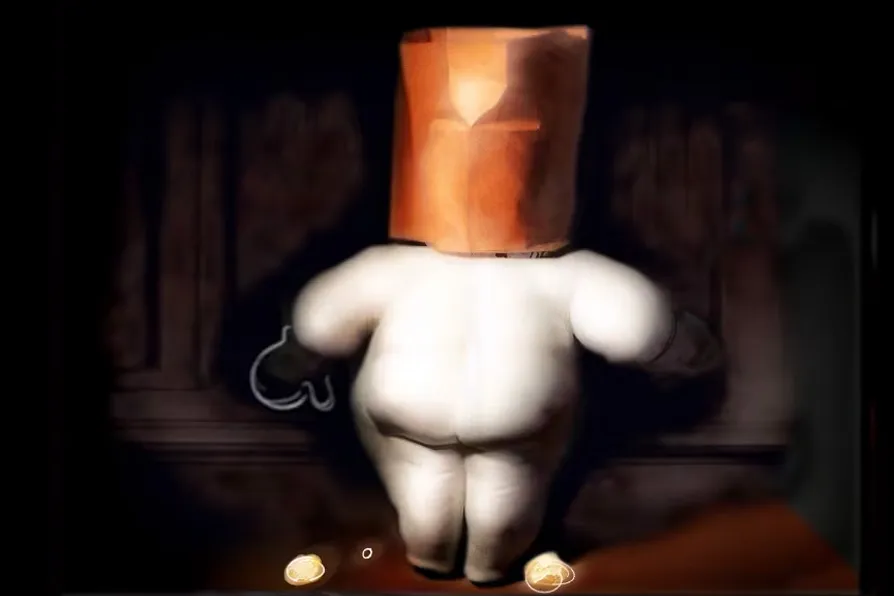GORDON PARSONS applauds a marvellous story of human ingenuity and youthful determination, well served by a large and talented company
RITA DI SANTO surveys the smorgasbord of films on offer at this year’s festival

 ANTI-CAPITALIST SATIRE: Alex Boya’s Bread Will Walk / Pic: National Film Board of Canada
ANTI-CAPITALIST SATIRE: Alex Boya’s Bread Will Walk / Pic: National Film Board of Canada
THE Cannes Film Festival has rolled out the red carpet for an unconventional opening film — a low-budget French romantic comedy set in a small village, focusing on a working-class narrative rather than celebrity glamour.
Amelie Bonnin’s Live One Day (Partir Un Jour) weaves musical elements into a story about Cecile, an aspiring chef aiming to open a gourmet restaurant in Paris. She returns to her hometown after learning of her father’s illness, only to discover he is out of the hospital and still working at their modest family restaurant, popular with truck drivers.
Cecile soon reconnects with friends, her ex-boyfriend, mother and especially her father. The narrative is a tribute to authenticity and reflection, celebrating the essence of rural life. Through cooking, Cecile rediscovers life’s true zest, defined not by wealth and successes but by genuine emotions and true relationships, capturing the spirit of a small community as a joyful space for freedom and decision-making.
Over the next 12 days, the festival will present a remarkable selection of films, drawing the global cinema community to Cannes, with an estimated 35,000 attendees from 150 countries.
Audiences can experience an unparalleled variety of films, ranging from the blockbuster Mission: Impossible — The Final Reckoning to Alex Boya’s surreal animated short Bread Will Walk, offering a fresh perspective on the zombie genre — where the undead need protection from the living, a darkly comedic satire on consumption and the dehumanizing commodification of food, critiquing the nightmares of capitalism, as food remains essential for all living beings.
The festival will also address critical global issues, as world events directly impact film-makers, crews and audiences. Three documentaries will focus on the conflict in Ukraine, while Ukrainian director Sergei Loznitsa returns to Cannes competition with Two Prosecutors.
Also featured is a documentary about Fatina Hassouna, the 25-year-old Gazan photojournalist killed in an Israeli strike, in Iranian film-maker Sepideh Farsi’s Put Your Soul on Your Hand and Walk.
Several African films will debut in Cannes, making history, as for the first time a Nigerian movie makes the Official Selection: Akinola Davies’s My Father’s Shadow, along with Aisha Can’t Fly Away by Morad Mostafa. Moroccan-French director Robin Campillo will showcase Enzo, and Cameroonian-French director Thomas N’Gijol will debut Indomitables. Also competing is The History of Sound by Oliver Hermanus from South Africa, featuring Paul Mescal and Josh O’Connor.
This year’s Cannes Film Festival is among the most star-studded in recent memory, featuring A-listers like Tom Cruise with Mission: Impossible — The Final Reckoning, with other notable attendees Scarlett Johansson, Benicio Del Toro, Tom Hanks and Benedict Cumberbatch.
Also highly anticipated are Spike Lee’s Highest 2 Lowest and Ethan Coen’s Honey Don’t!, the second instalment in his lesbian B-movie trilogy. These films, characterised by unique storytelling, embody a strong independent spirit, with most being low-budget productions rich in creativity.
The Cannes Film Festival stands as the world’s largest festival, the one every director aspires to attend. But why is that? It retains the essence of its origins. Although not the oldest festival — established a few years after the Venice Film Festival, which began in 1932 under the fascist regime — Cannes started in 1939 as a response to the Venice festival and has since evolved into the largest film festival globally.
Film-makers, actors, journalists and industry enthusiasts gather here not for the charming little town but for its distinctive cinematic offerings. The Cannes festival is a sanctuary of freedom, a blend of independent cinema, a treasure trove of discoveries, merging classic cinema with emerging film-makers. It is often overwhelming, abundant and chaotic, yet continues to attract thousands of attendees.

RITA DI SANTO reports on the films from Iran, Spain, Belgium and Brazil that won the top awards

MARIA DUARTE is in two minds about a peculiar latest offering from Wes Anderson

RITA DI SANTO speaks to the exiled Ukrainian director Sergei Loznitsa about Two Prosecutors, his chilling study of the Stalinist purges

DENNIS BROE sifts out the ideological bias of the newest TV series offerings, and picks out what to see, and what to avoid









